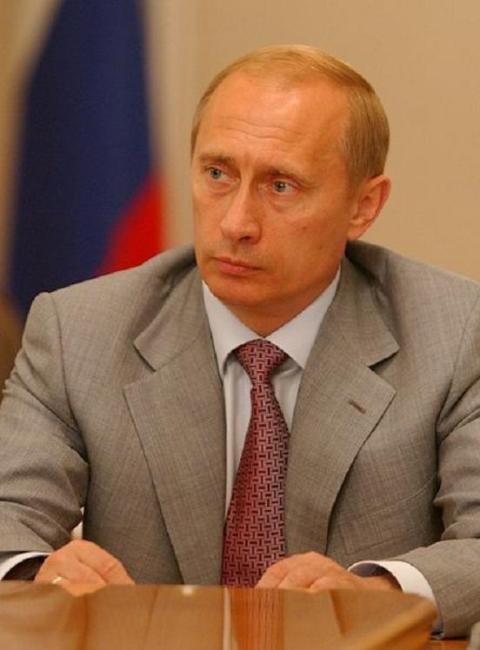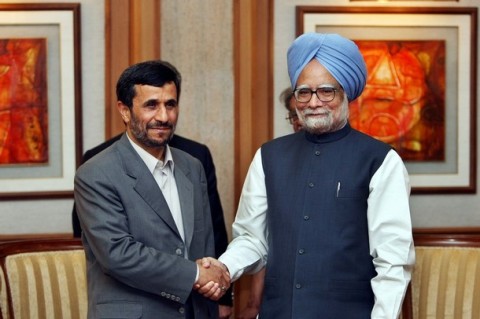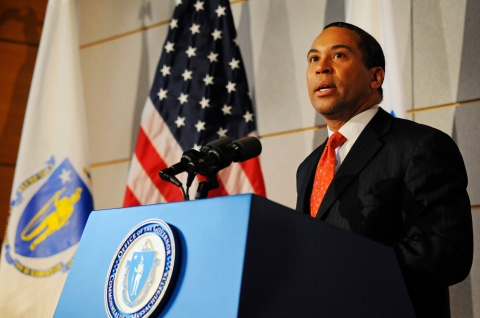Posts Tagged ‘prime minister’

Russian President Dmitry Medvedev on wednesday signed a law extending the presidential term, the Kremlin said, in a move many observers believe is designed to bring former president Vladimir Putin back to the nation’s top office.Medvedev, Putin’s hand-picked successor, proposed the changes in November, starting with the next president.
The new law extends the term of the president from four years to six. Medvedev also signed a law extending the term of members of the lower house of parliament, the Duma, from four years to five.Putin stepped down as president in May after two terms and is now prime minister.Earlier this month, Putin shrugged off the suggestion that Medvedev would step down to make way for his return when the law passes.
Putin has done call-in programs each year since 2001, but this was his first one as prime minister, rather than president. Putin remaining in the chair this year, rather than yielding it to Medvedev, showed he still runs Russia, said analyst Yevgeny Volk, the director of the Moscow office of the Heritage Foundation, a conservative U.S.-based think tank. Medvedev also signed a law giving the Duma more powers over the Russian government. The Duma may now consider annual performance reports issued by the government

Prime Minister Manmohan Singh with Iranian President Ahmednijad
As part of stepped-up diplomatic offensive to get Pakistan to act against perpetraors of Mumbai
terror attacks, Prime Minister Manmohan Singh last night (December 27) spoke to Iranian President Ahmednijad and is understood to have asked him to pressure Islamabad to do more to end cross-border terrorism.
Singh conveyed to Ahmednijad that Pakistan has to take concrete action to stop cross-border terror and by being in denial mode would not help.The Prime Minister is understood to have told the Iranian leader that India has so far exercised restraint and asked him to presssure Pakistan to take concrete action against handlers of those who carried out the Mumbai terror attacks last month.
The telephonic conversation between Singh and Ahmednijad came a day after External Affairs Minister Pranab Mukherjee to his Iranian counterpart Manounchehr Mottaki on the issue.
Mukherjee had also spoken to his counterparts from the US, China and Saudi Arabia over phone and told them that India has “ample evidence” about involvement of Pakistan-based elements in the Mumbai strikes and that they should to put pressure on Islamabad to act against them.
During these conversations, Mukherjee emphasised that the Mumbai attacks should not be seen in the context of Indo-Pak relations but as part of global terrorism and the international community should join India in fighting this.
Economic plan
Posted on: December 13, 2008

The leaders of three of Asia’s biggest economies have vowed to work more closely together to reduce the damage caused by the global financial crisis.
Japan and China’s prime ministers and the South Korean president – meeting in Japan – agreed to boost trade and greatly increase currency swaps.
China’s Wen Jiabao called the summit, the first of its kind, a “milestone”.
He said such co-operation would “have real significance” as the crisis impacted on economies around the world.
The North Asian nations, former enemies, have held talks on the sidelines of international meetings, but this is their first independent trilateral summit.
“It is quite a milestone to hold a stand-alone China-Japan-South Korea summit,” Mr Wen said as he opened talks with Japanese Prime Minister Taro Aso and South Korean President Lee Myung-bak in the southern city of Fukuoka.
Swap facilities
The Duncan Bartlett in Tokyo says China, Japan and South Korea are closely intertwined economically and their leaders regard co-operation with their neighbours as a vital means of lifting the East Asian region out of its current financial malaise.
In a joint statement, the leaders said that Asia was “expected to play a role as the centre of world economic growth in order to reverse the downward trend of the world economy”.
The countries said they planned to increase the amount of money swapped between them through the Chiang Mai Initiative – a move which should benefit South Korea especially, as the won has lost a third of its value since the start of the year.
Our correspondent says the nations believe the swaps will prevent a repeat of the situation 11 years ago when sudden slides in currency values triggered a major financial crisis in Asia.
The three men also called for an urgent injection of capital into the Asian Development Bank.
Ahead of the talks, the South Korean central bank announced in a statement that it had increased its bilateral swap facility with the Bank of Japan to $20bn (£13bn), and a similar facility with the People’s Bank of China to $26bn.
Japan is also trying to put aside its past differences with China, partly because it was trade between them that helped pull Japan out of its last prolonged recession during the 1990s, our correspondent says.
All three countries – which account for 75% of the region’s economy and two-thirds of its trade – have announced major individual economic stimulus packages in recent months.
On Friday, the Japanese government increased by 23 trillion yen ($255bn) its stimulus plan, more than half of which will be used to bring stability to the financial markets. It follows a 27 trillion-yen package in October.
“This is a great global recession which comes once in a hundred years,” Mr Aso said. “But by taking appropriate measures without any delay, we can minimise the impact.”
Earlier this week, China revealed that its exports had fallen for the first time in seven years. However, it still reported a record monthly trade surplus.
Beijing launched a four trillion yuan ($586bn) stimulus plan last month, and on Wednesday pledged to boost public spending and cut taxes.
South Korea, the hardest hit by the financial crisis, meanwhile offered $130bn of guarantees on foreign-currency borrowing and liquidity to its banks.
At a separate meeting on Saturday, the South Korean and Japanese leaders condemned North Korea for showing an “unco-operative attitude” in the latest round of six-party talks aimed at dismantling its nuclear disarmament programme in Beijing this week.




![Sliding down the Splash [Explore] Sliding down the Splash [Explore]](https://live.staticflickr.com/65535/53768331947_21e99348c6_s.jpg)






Recent Comments